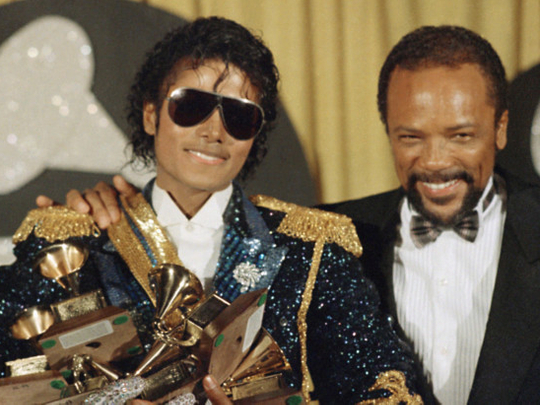
A jury on Wednesday found that Michael Jackson’s estate owes Quincy Jones $9.4 million (Dh34.5 million) in royalties and production fees from Billie Jean, Thriller and more of the superstar’s biggest hits.
The award from a Los Angeles Superior Court jury fell short of the $30 million the legendary producer sought in the lawsuit filed nearly four years ago, but well above the approximately $392,000 the Jackson estate contended Jones was owed.
The jury of 10 women and two men had been deliberating since Monday.
“This lawsuit was never about Michael, it was about protecting the integrity of the work we all did in the recording studio and the legacy of what we created,” Jones wrote in a statement.
Estate attorney Howard Weitzman said he and his team were surprised by the verdict and would appeal it. Weitzman and co-counsel Zia Modabber wrote in a statement that Jones was seeking money that wasn’t owed to him.
Jones claimed in the lawsuit that Jackson’s estate and Sony Music Entertainment owed him for music he had produced that was used in the concert film This Is It and two Cirque du Soleil shows that used Jackson’s songs.
The lawsuit said the entities had improperly re-edited the songs to deprive Jones of royalties and production fees, and that he had a contractual right to take first crack at any re-edit or remix.
Taking the stand
The Jackson camp held that Jones should only be paid licensing fees for songs used in those three productions. Jones claimed he was entitled to a share of the overall receipts from them.
Jones took the stand during the trial, and was asked by Jackson estate attorney Howard Weitzman whether he realised he was essentially suing Jackson himself.
Jones angrily disagreed.
“I’m not suing Michael,” he said. “I’m suing you all.”
The defence attorneys pointed out that Jackson’s death in 2009 has already been lucrative for Jones, who made $8 million from his share of their works in the two years after the singer’s death, versus $3 million in the two years previous.












